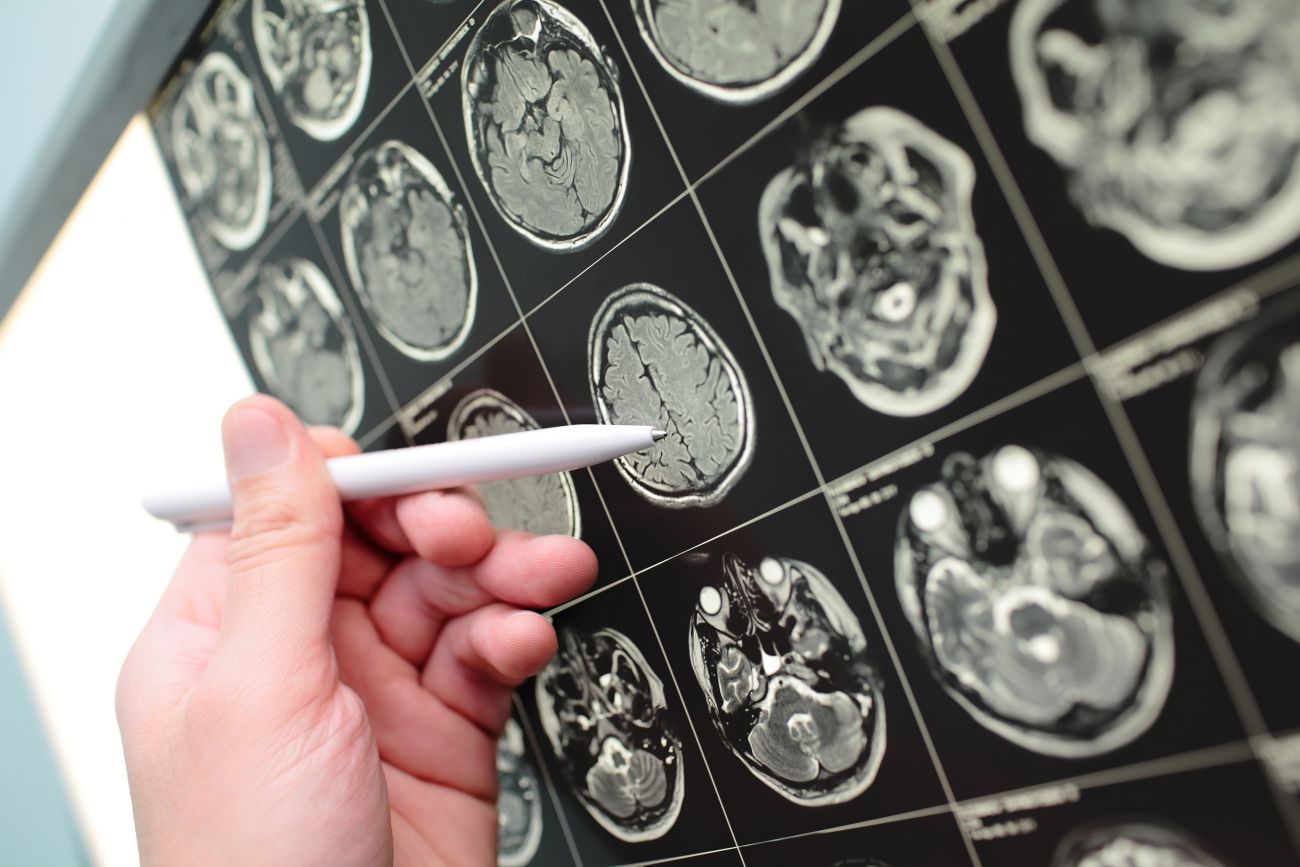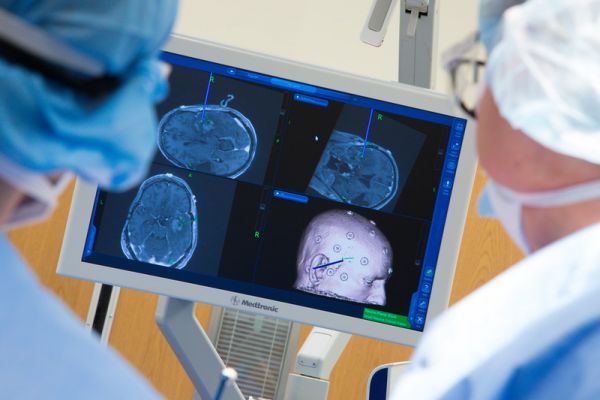Malignant and benign (non-cancerous) brain tumors have similar symptoms. They can cause seizures or cause neurologic problems, such as paralysis and speech difficulties. The difference between the two is that malignant tumors are cancerous and can spread rapidly into other parts of the brain, sending cancerous cells into surrounding tissue. Benign tumors can grow but do not spread.
There is no way to tell from symptoms alone if a tumor is benign or malignant. Often an MRI scan can reveal the tumor type, but in many cases, a biopsy is required.
If you are diagnosed with a benign brain tumor, you’re not alone. About 700,000 Americans are living with a brain tumor, and 80% of primary brain tumors — tumors that began in the brain and did not spread from somewhere else in the body — are benign. But if a tumor is not cancerous, do you have to do anything about it?
Never miss another Cancer Talk blog!
Sign up to receive our monthly Cancer Talk e-newsletter.
Sign up!“Even a benign tumor that’s growing inside the head is potentially dangerous," says Robert Fenstermaker, MD, Chair of Neurosurgery at Roswell Park Comprehensive Cancer Center. "There’s only so much room inside the skull, and the brain occupies most of it. Even if a brain tumor is benign and growing slowly, eventually the brain won’t be able to tolerate that, and symptoms will develop, which can be life-threatening.”
Most benign tumors are treated with surgery, focused radiation or a combination of the two. “Increasingly, we’re finding that a combination is better than either one by itself. If a tumor is large, it’s hard to treat it with just radiation therapy. Surgery will help reduce the tumor's size,” says Dr. Fenstermaker.
“At the same time, it may not be safe to remove the entire tumor. It could be touching or encasing blood vessels or other critical structures, such as nerves, and trying to remove the entire tumor could damage those structures. What we’re doing is reducing the size of those tumors with surgery and then treating them with focused radiation, such as Gamma Knife radiotherapy, to control what’s left.”
What to Expect with Gamma Knife Radiosurgery
Gamma Knife patient, Keith Cordaro shares his experience receiving radiosurgery treatment at Roswell Park.
Read Keith's StoryIn some cases, treatment may not even be necessary. Every patient is different. Each case depends on the size of the tumor and the age of the patient and whether symptoms have appeared. "If a patient is older and the tumor is small, we may simply monitor the patient with MRIs on a yearly basis to confirm that the tumor is not growing. So you may not need to treat them, as long as long as you follow them carefully," Dr. Fenstermaker explains.
He stresses that if treatment is needed, it's still important that patients seek treatment at a National Cancer Institute-designated comprehensive cancer center like Roswell Park, even for benign tumors.
"We treat brain cancer, but we also treat benign brain tumors. The same skill set is involved in each treatment. The question to ask your neurosurgeon is not necessarily, 'How many of this particular type of tumor have you removed?' but 'How many tumors have you removed or treated?'
“Also, as a patient, it’s important that you have exposure to a range of treatment options. These include surgery, radiation therapy and, in some cases, chemotherapy — all things that are offered at a comprehensive cancer center like Roswell Park.”
There's always the risk of complications during surgery, and patients may be at risk of stroke during the removal of a brain tumor. In addition, temporary swelling of the brain may occur following surgery or focused radiation therapy.
Most patients see an improvement in their symptoms shortly after treatment of their benign tumors. "The vast majority of people who have their brain tumors removed function better after treatment than before," says Dr. Fenstermaker. "There are risks to vital neurologic functions that can’t be reduced to zero, but the modern treatment of brain tumors is a great advance, and it greatly benefits most patients."


